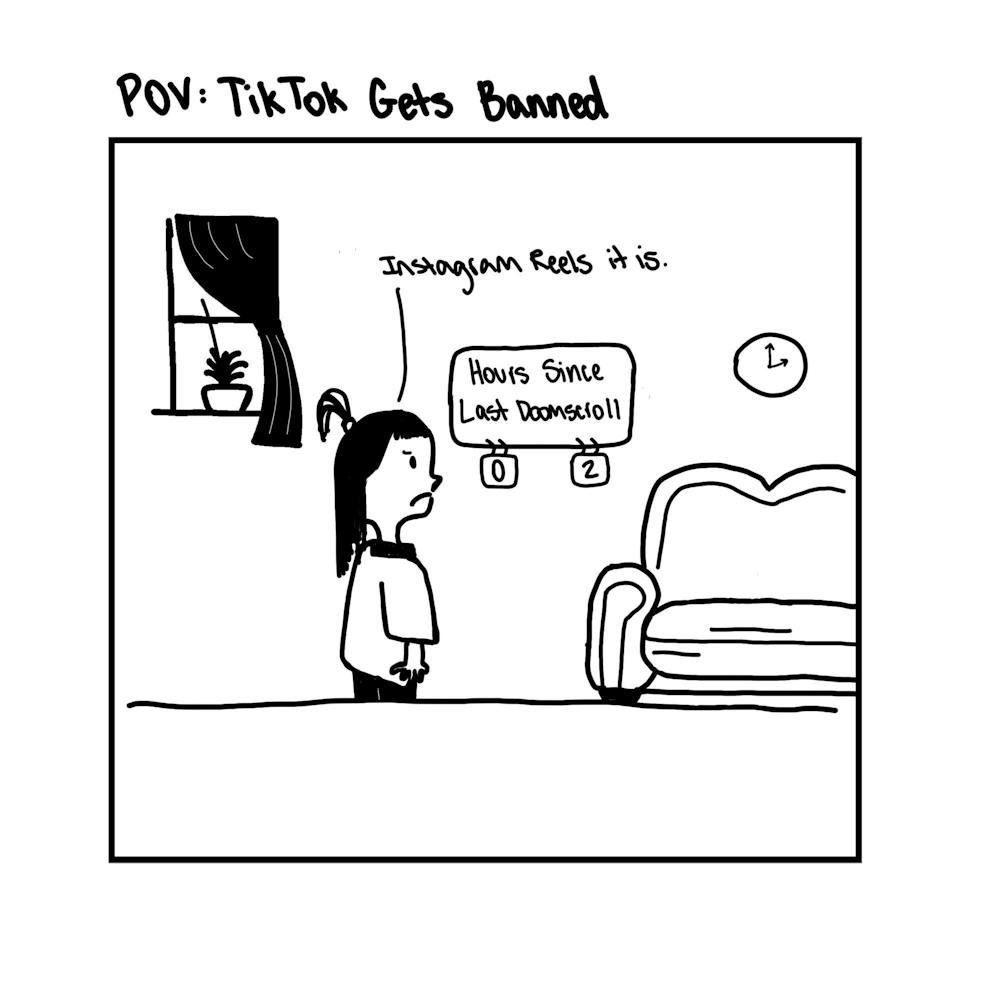When the demise of TikTok finally swept through the United States, I was initially joyous. What a delight that my controlled use of approximately 30 minutes a day would reach an end. Like an ocean ceasing to a shore, I would be wiped clean of any pull that ever drew me to that abomination of media. Even better, I would be disavowed from the community of lifeless thick-skulled sleepwalkers crawling through their nights with the glow of influencers illuminating from their screen.
I had witnessed them in passing. The doomed scrollers swiped away at such a rate, it repulsed me. Were they even watching? The videos would spin so quickly, their lack of attention blending into a disturbing music of short clips; it was almost violent to listen to.
I celebrated my silent victory. Free at last I was. I no longer would be terrorized by these sad individuals and their deranged sounds poisoning my own silence and thoughts.
In my delight, I opened another app and began to casually click through the posts of friends and others. I had anticipated it to be saturated with these doomscrollers wailing and making a mockery of a national security issue banning what they desperately clung to. “Idiots,” I laughed to myself.
Yet after viewing some of these stereotypical cries pleading for TikTok’s revival, horror began to run down my spine. It couldn’t be true. My eyes scanned the screen frantically. Post after post, friends shared that their disarray of TikTok’s removal had led them to something much more threatening and sickening to my well-being: they had begun to read.
“I just downloaded Goodreads!” one post read of a young girl smiling radiantly. Her eyes, once so familiar as barred and subdued, were full of color and life. I nearly threw up.
The next post was of a boy holding up “A Little Life” by Hanya Yanagihara with eyes gleaming, his caption sharing how thrilled he was to finally leave TikTok and begin to do something of substance. I couldn’t believe my eyes.
In a stream of posts, my hands shakily clicked through, each suggestion of reading made me shiver. TikTok was the pulse of a thoughtless subsection of humans. All this time, I had foreseen the cessation of the app as the beacon for hope, for personal gain, a new defining sense of stimulation derived from life rather than a screen. How could I have been so naive!
TikTok’s dissolution had dismantled the hierarchy of critical thinking, allowing those with attention deficits to enter a world of progression, improvement and dauntingly, of literature.




